Koktail Konversations Ep. 6: Toby Lu on River City Bangkok’s Next Chapter
Toby Lu reflects on River City Bangkok’s evolution and how art experiences ...
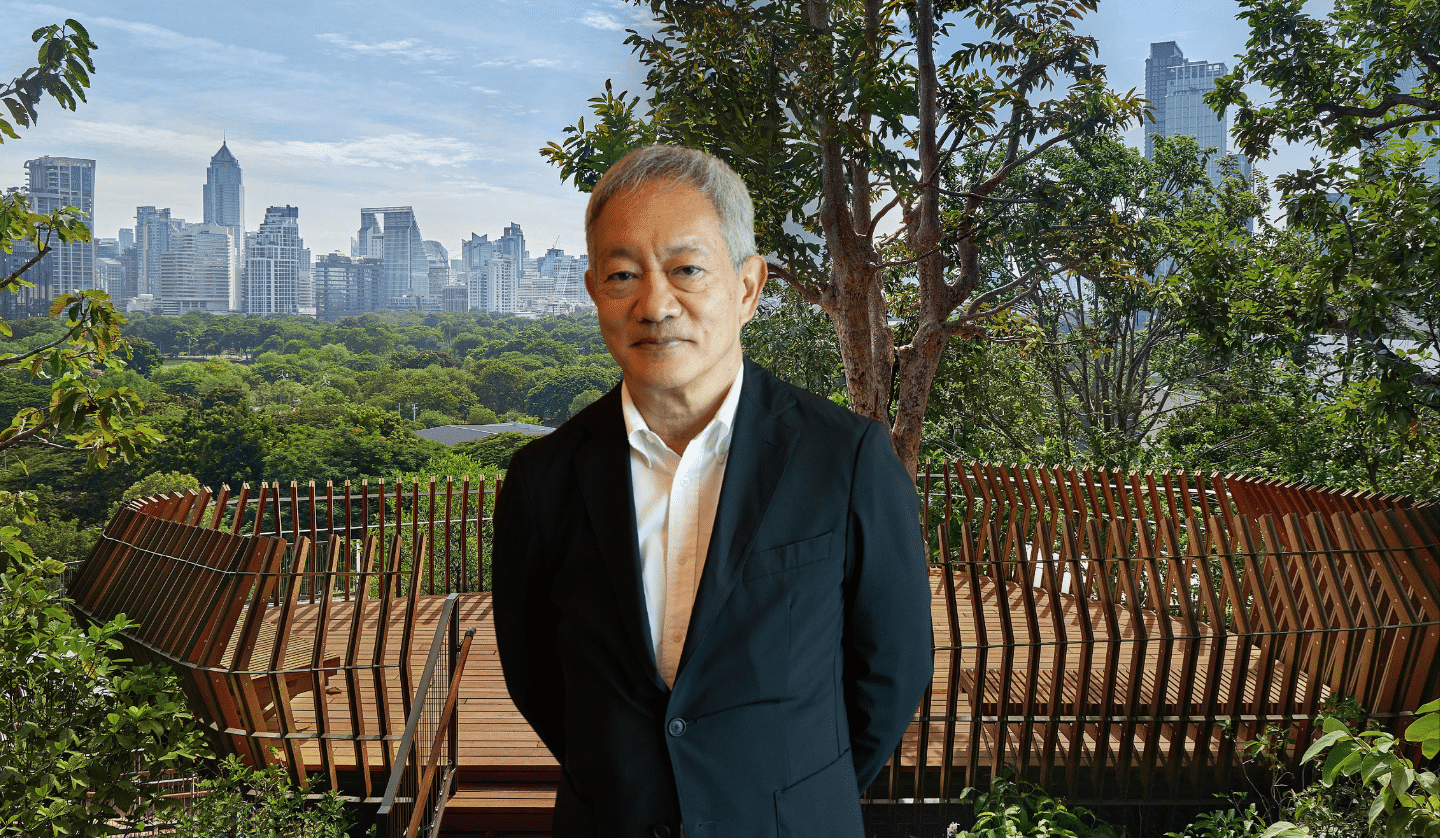
Koktail Konversations returns with a story that goes beyond architecture and business to reflect on how heritage, Thainess and the desire to give back to the community continue to shape one of Thailand’s most enduring names in hospitality.
Koktail sits down with Chanin Donavanik, Group Chief Executive Officer, Acting Chairman of the Board of Directors, and Chairman of the Executive Committee of Dusit International, who shares how the rebirth of Dusit Thani Bangkok became both a personal journey and a national statement on the spirit of Thai hospitality.
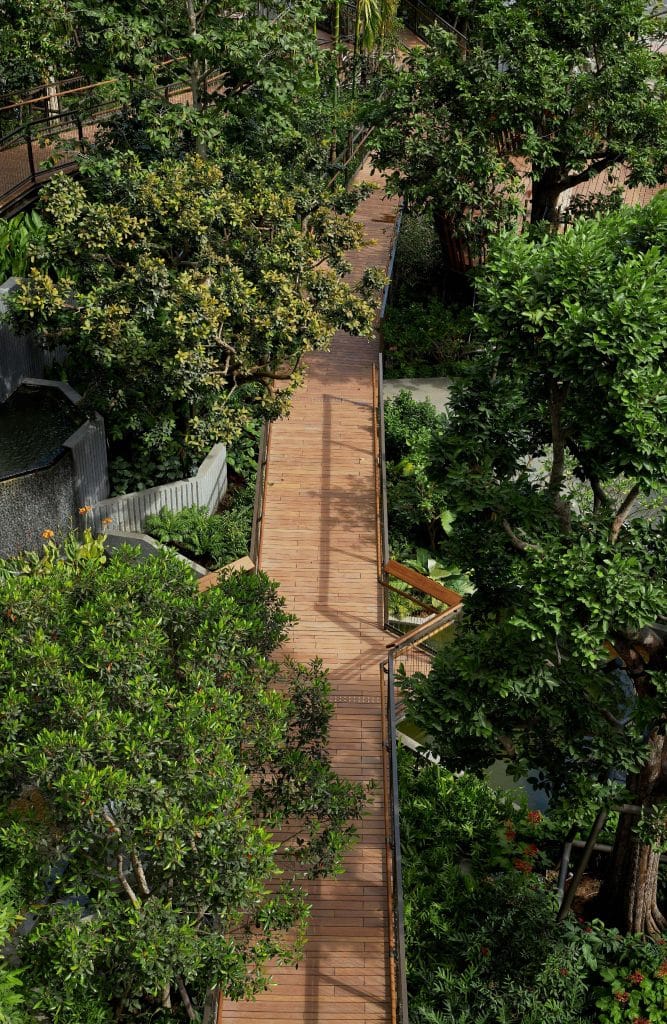
The new Dusit Thani rises as a landmark that bridges history with modern ambition. For Chanin, the idea to rebuild the iconic hotel had been brewing for years, long before the old building closed its doors.
“I’d been thinking for a long time that we needed to do something,”
he recalls, his tone thoughtful rather than nostalgic. Having joined the family business in 1979, he had overseen two major renovations. Yet he recognised that no refurbishment could ever match the sense of possibility that comes with creating something entirely new.
The challenge, he explains, was not just about rebuilding a hotel but redefining what Dusit could mean in the modern world.
“Ever since I came back to work here in 1979, we have done two major renovations. But no matter how much you renovate, it can never quite compare with something newly built,”
he says.
That decision led to one of Bangkok’s most ambitious redevelopments, a multi-use project that integrates a hotel, a shopping centre, an office tower and residences. The vision was shaped by years of research, drawing inspiration from similar redevelopments in Japan. The result is a contemporary destination that retains the soul of its predecessor while embracing the needs of a new generation of travellers and residents.
At the heart of this transformation lies a guiding philosophy rooted in identity.
“Dusit, as my mother Thanpuying Chanut Piyaoui originally intended, was meant to be a brand that represented Thainess,”
says Chanin. His mother founded the company more than 60 years ago with a simple yet powerful purpose: to showcase the grace, warmth and artistry of Thailand to the world.
That intention remains intact. The new Dusit Thani has been designed as an embodiment of Thai culture expressed through space, light and nature. The open courtyards and lush gardens that once defined the old hotel have been reimagined as green sanctuaries amid the urban landscape.
“People should feel a sense of lush greenery when they come in, because that was what my mother loved,”
he says.
This commitment to greenery became a cornerstone of the new design. Every element was planned to preserve a sense of calm and connection, from the way sunlight moves through the building to the presence of native Thai trees that soften the city’s concrete edges. It is a philosophy that values atmosphere as much as aesthetics.
Among the project’s most distinctive features is Dusit Arun, a rooftop garden designed as an open public space, an unexpected oasis in the middle of Silom. The concept, Chanin reveals, grew from three intertwined inspirations: his mother’s love for trees, the traditional belief in auspicious directions, and a request from the Crown Property Bureau to create something meaningful for the community.
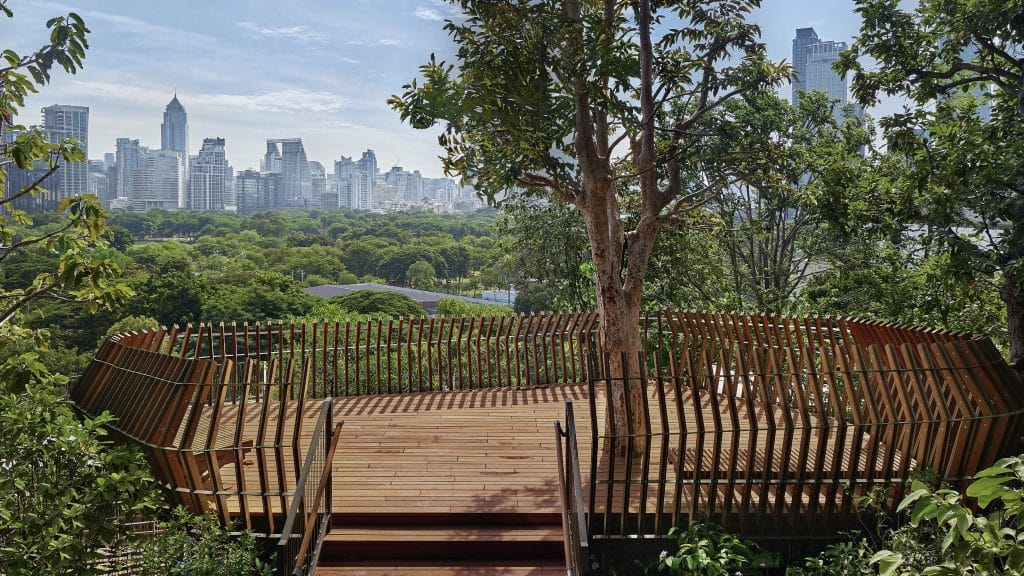
Rather than leaving the rooftop as an afterthought, the team decided to move all mechanical equipment underground and dedicate the entire space to greenery.
“We invested to move all the machinery underground so that the rooftop could become a full garden,”
he says.
The result is a tranquil elevated park where visitors can walk, breathe and look out over one of the most striking city views.
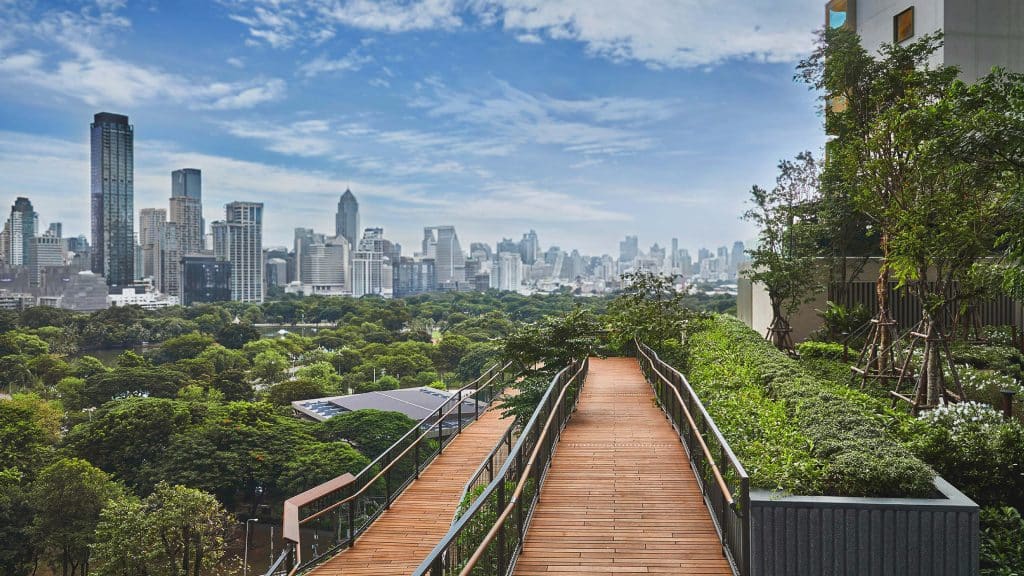
“I think the view of Bangkok from Dusit Arun is one of the most beautiful in the city,”
he notes, describing how the garden has already become a place where families stroll and neighbours relax.
He shares a story that reflects its deeper meaning: a man once thanked him for designing the garden’s pathways without stairs, making it possible to wheel his elderly father around the space.
“That made me happy,” he says with satisfaction. “We want to do something for the local community – that’s the reason behind it.”
For Chanin sustainability is a way of thinking about how a building lives within its environment.
“We created a space that everyone can access, we planted a lot of trees, all of which are native Thai species that help with pollution, insects, air quality and oxygen,”
he explains.
From the outset, the project was designed to make the most of natural light and fresh air. The aim was to create views that connect people with nature rather than enclosing them within walls of glass and steel.
As the conversation turns toward the future, Chanin’s vision becomes both national and global.
“There must be Thai companies, with Thai names, run by Thai people, that can proudly compete on the international stage,”
he says.
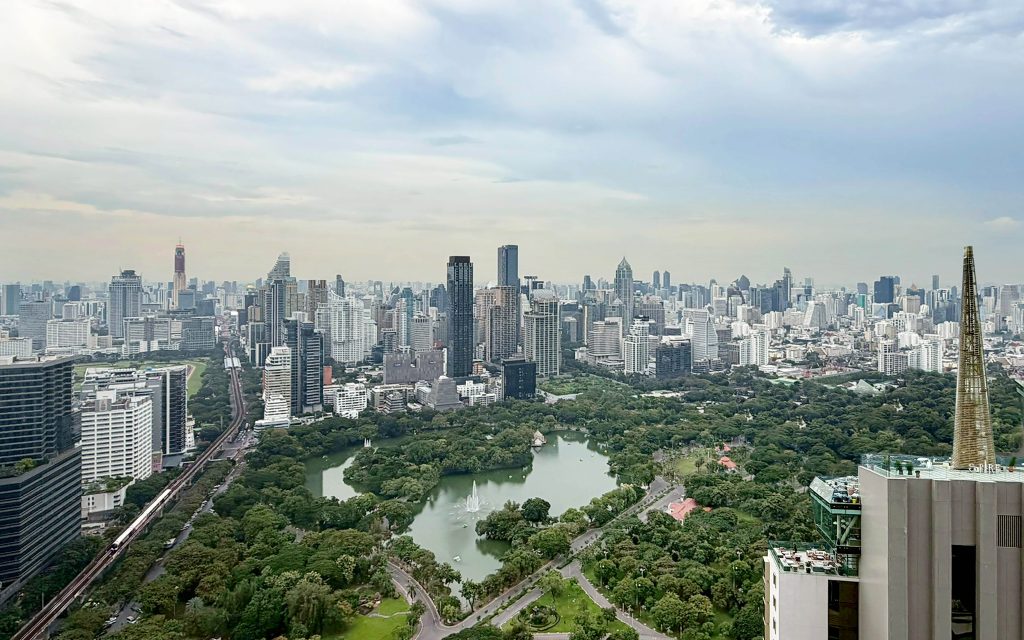
It is a statement of confidence, grounded not in competition but in pride, a belief that Thai hospitality, with its genuine warmth and sensitivity to detail, has something unique to offer the world.
Beyond the business itself, his reflections return to the idea of giving back. From his travels, he has seen how cities grow denser and less personal, and he wants Dusit to serve as a counterexample.
“We want to be part of changing that and I hope in the future, more large projects will include public spaces where people can walk, relax, and enjoy,”
he says.
The full conversation with Chanin Donavanik is available now on Koktail Magazine’s Instagram.
Toby Lu reflects on River City Bangkok’s evolution and how art experiences ...
VERY THAI: In this periodic column, author Philip Cornwel-Smith explores popular culture ...
Wandering around the globe, try out the signature tastes of cultures across ...
These top 5 barber shops in Bangkok are where gentlemen can elevate ...
Once considered traditional, the sbai is now driving a new wave of ...
Sailorr and Molly Santana’s black grills fuse hip-hop swagger with homage to ...
Wee use cookies to deliver your best experience on our website. By using our website, you consent to our cookies in accordance with our cookies policy and privacy policy